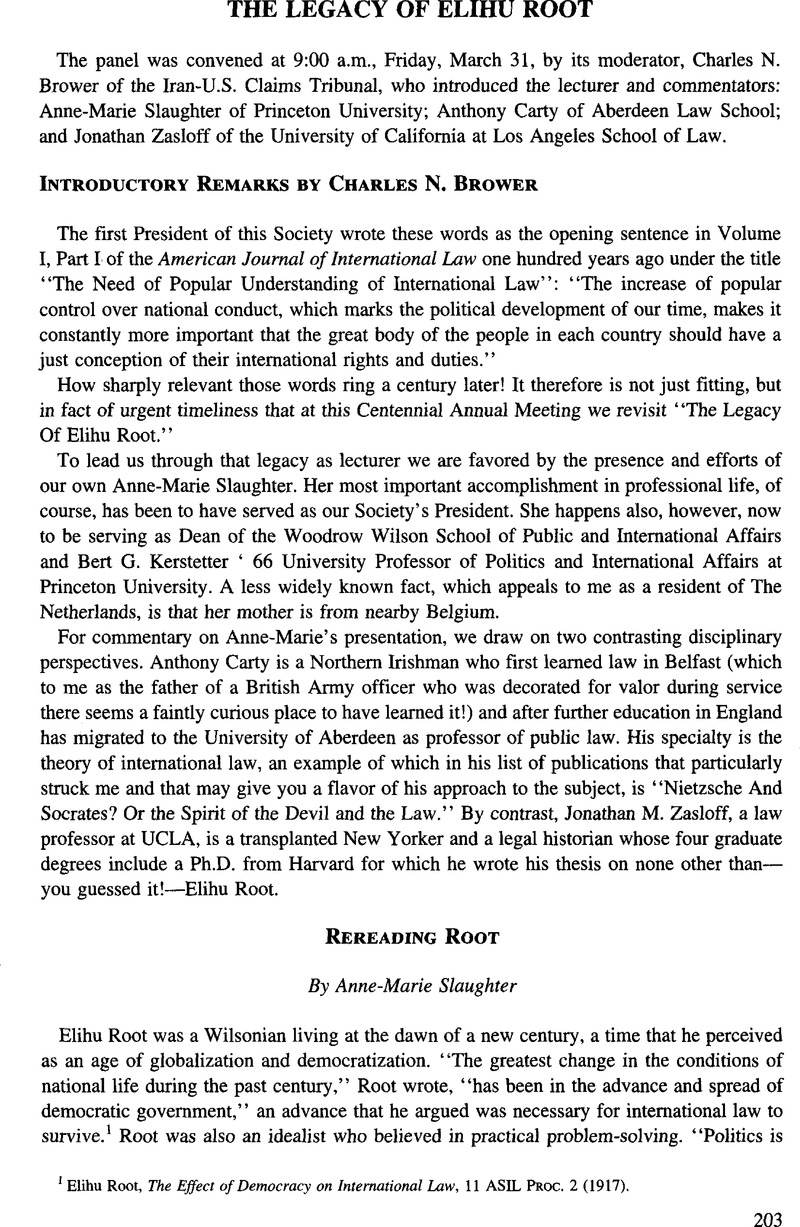No CrossRef data available.
Published online by Cambridge University Press: 28 February 2017

1 Root, Elihu, The Effect of Democracy on International Law, 11 Asil Proc. 2 (1917)Google Scholar.
2 Lincoln as a Leader of Men, in Men and Policies: Addresses by Elihu Root, 69-75 (Bacon, Robert & Scott, James Brown eds., 1924)Google Scholar.
3 The National Security Strategy of the United States of America (Mar. 16, 2006), available at <http://www.whitehouse.gov/nsc/nss/2006/mtro.html> [hereinafter National Security Strategy].
4 Root, Elihu, The Sanction of International Law, 2 Asil Proc. 14 (1908)Google Scholar.
5 Root, supra note 1, at 5.
6 Id. at 7.
7 Id.
8 Root, supra note 4, at 452.
9 Id.
10 Id. at 455.
11 Id.
12 M. at 456.
13 Root, supra note 1, at 7.
14 Id. at 7-8.
15 Id. at 8. Root also falls back on de Tocqueville’s classic account of how democracy is incompatible with the secrecy, steadiness of purpose, and careful and patient planning necessary for successful foreign policy. Id. at 9. Root flips de Tocqueville’ s analysis to insist that “the settled and continuous policies of a democracy are defensive” ; democracies cannot sustain the expense and military discipline necessary for policies of aggression. Id. at 8, 10.
16 Id.
17 Id. at 4.
18 Root, supra note 1, at 10.
19 Id.
20 Frederic L. Kirgis, The American Society of International Law: The First Hundred Years 2, at <http://www.asil.org/pdfs/Asilhistory.pdf>.
21 Root, supra note 1, at 8.
22 See infra p. 210.
23 Infra, 210.
24 Id., at 211-12.
25 Bolton, John R. Should We Take Global Governance Seriously?, 1 Chi. J. Int’l L. 205, 220 (2000)Google Scholar.
26 Senator Joseph Biden, “Toward Enlightened Nationalism,” Speech to New American Strategies for Security and Peace (Oct. 28, 2003), <http://www.senate.gov/member/de/biden/general/newsroom/details.cfm?id=214221&&>.